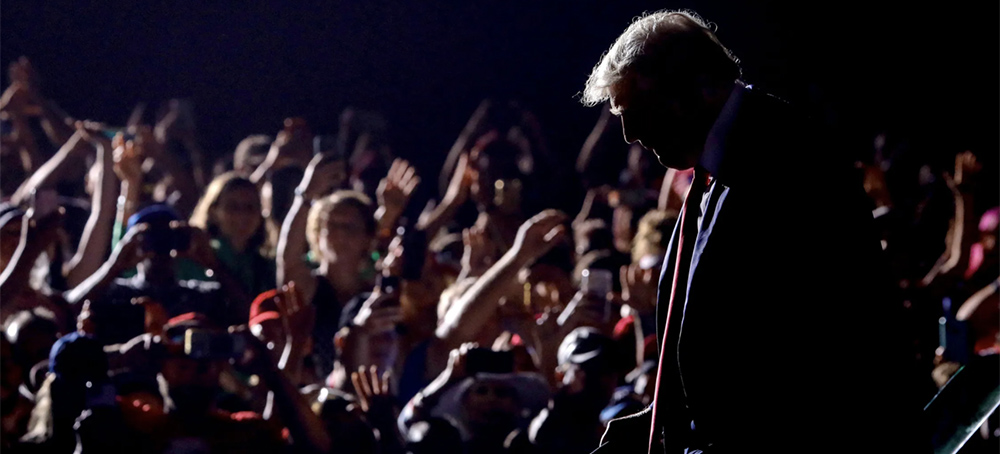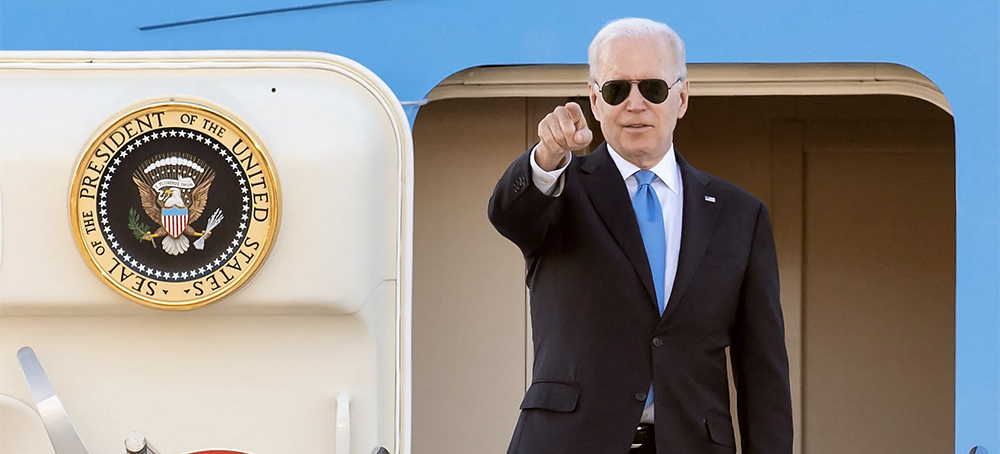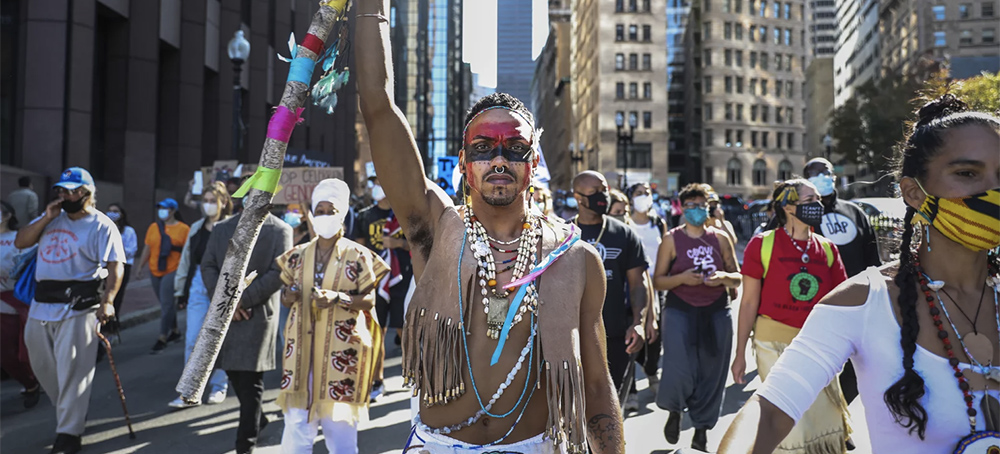Live on the homepage now!
Reader Supported News
It’s hard to consign the Trump years to the history books when we remain in the middle of the crisis that it sparked.
There’s a few golden nuggets to be mined even from the most unreadable, obscure, and self-serving of such memoirs. Even before it ended, the Trump Administration produced a remarkable number of these accounts, as wave after wave of fired press secretaries, ousted Cabinet officials, and disgruntled former aides signed lucrative book deals. There were so many books seeking to explain Trump and his times that the book critic of the Washington Post wrote his own book about all of the books. Trump’s fired executive assistant—ousted because she claimed, at a boozy dinner with reporters, that the President had said nasty things about his daughter Tiffany—wrote a book. Trump’s first two press secretaries wrote books. First Lady Melania Trump’s former best friend wrote a book. Trump’s third national-security adviser, John Bolton, wrote an explosive book with direct-from-the-Situation-Room allegations of Presidential malfeasance that might have turned the tide in Trump’s first impeachment trial had Bolton actually testified in it. And none of those even covered the epic, Presidency-ending year of 2020.
Dozens of books have now been published or are in the works which address the COVID pandemic, the 2020 Presidential election, and the violent final days of Trump’s tenure. The history of the Trump Presidency that I am writing with my husband, Peter Baker, of the Times, already has eighty-nine books in its bibliography; many are excellent reported works by journalists, in addition to the first-person recollections, such as they are, by those who worked with and for Trump. This month, Stephanie Grisham became the third former Trump Administration press secretary to publish her account. Grisham, who has the distinction of being the only White House press secretary never to actually hold a press briefing, has written a tell-all that includes such details as the President calling her from Air Force One to discuss his genitalia. Still to come are promised memoirs by former Vice-President Mike Pence, former Attorney General William Barr, and the former White House counsellor Kellyanne Conway, among others. Trump’s son-in-law Jared Kushner is writing an account of his Middle East peacemaking efforts. A book from the former White House chief of staff Mark Meadows, “The Chief’s Chief,” is due out in December; Trump promoted it the other day as “an incredible Christmas present” that will explain how his Administration “did things that no other administration even thought they could do.”
Trump, of course, meant this as a bragging point, not as an ironic commentary on all the norm-busting and lawbreaking that occurred during his four years in office. “Remember,” he said in the statement, “there has never been an administration like ours.” In that, he’s right. The rapidly accumulating pile of books on the history of the Trump Administration is different in a crucial respect: they are not helping to explain the past so much as they are attempting to explain a present and very much ongoing crisis. Meadows, for example, is a crucial witness in the investigation by the House select committee into the events of January 6th. The panel subpoenaed him and several other Trump advisers to give testimony and hand over documents, with a deadline of Thursday. Not one has done so, setting the stage for a new and potentially protracted series of court battles. The panel announced on Thursday that it will seek to hold Steve Bannon, Trump’s fired White House strategist (the two later reconciled), in criminal contempt; it said that it is still negotiating with Meadows and the former Pentagon official Kash Patel. How many months or years will we have to wait to find out what they and others knew, and did, as a pro-Trump mob tried to stop Congress from certifying Trump’s defeat?
The bottom line is that the story of the Trump Presidency still has important unanswered questions that the forthcoming pile of books cannot answer. And they have an urgency about them that unanswered questions about past Administrations usually don’t, given the ongoing threat to our democracy: Trump is not only preparing to run again but is determined to mold the G.O.P. into a single-issue Party, the ideology of which consists solely of disputing the legitimacy of the election that turned him out of office. The Trump Presidency is not yet, alas, simply a matter for booksellers and book writers; it’s an active crime scene.
Several of the more interesting new books come from participants in one of Congress’s earlier efforts to investigate and hold Trump accountable—his first impeachment, in 2019, for withholding several hundred million dollars in security assistance to Ukraine to force its President to conduct politically motivated investigations of Joe Biden and the 2016 election. Two of the trial’s witnesses, Alexander Vindman and Fiona Hill, recently released memoirs that cover their roles in Trump’s National Security Council—which led them to unexpected public fame, given that Trump tried to stop their testimony. Hill’s book, “There Is Nothing for You Here,” is one of the most compelling to emerge from inside the Trump White House. She observes, at first hand, how Trump’s “autocrat envy” led not only to open admiration of anti-democratic figures such as Vladimir Putin and Victor Orbán but to Trump’s adoption of their anti-democratic agenda inside America.
The chairman of the House Intelligence Committee and the lead impeachment manager, Adam Schiff, released his contribution to the Trump bookshelf this week, “Midnight in Washington,” the title of which comes from one of the many eloquent speeches that Schiff made during the first impeachment trial. In the proceedings, he presciently warned that a failure to convict and remove Trump from office would result in even worse abuses. His book ends with a new warning embedded in the subtitle: “How We Almost Lost Our Democracy and Still Could.” The Washington Post, in its review, called it a “500-page closing statement on an era that has not yet closed.”
Schiff’s book is a valuable part of the historical record in part because it details how Democrats pursued impeachment—why they ruled out a broader set of charges, for example, and how they had to quickly investigate the Ukraine matter on their own, something that traditionally would have been handled by an independent prosecutor. But the main takeaway from the book, and the entire experience of the past few years, is that Congress, with one chamber controlled by Democrats and the other by Republicans who were unified in Trump’s defense, is not set up to investigate a rogue President like Trump—a disconcerting fact, considering the challenges still posed by the ongoing Trump crisis.
Throughout his Presidency, Trump and his aides flouted congressional subpoenas and demands for information; he is once again instructing them to do so with the January 6th investigation, even though he is out of office and it is unclear if any executive privilege would still apply. Schiff, a former federal prosecutor, is now a member of the January 6th select committee. The test, once again, he told me, is whether and how Congress can find a way of “enforcing the rule of law” and its own subpoenas. It is a great crisis, he said, if “a coequal branch of government cannot get the information it needs, both to legislate and to keep an Administration from becoming corrupt.” This is no wonky procedural matter but a test of American democracy’s ability to self-correct. The true history of the Trump Administration can’t be written without it.
Follow us on facebook and twitter!
PO Box 2043 / Citrus Heights, CA 95611





